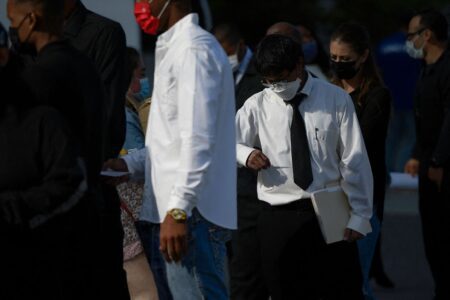
International students — there might just be an even faster way for you to become a Canadian permanent resident. In an interview that aired last weekend, Minister of Immigration, Refugees and Citizenship Canada (IRCC) Sean Fraser announced that his department is on the verge of establishing a programme to fast-track PR approvals for those who hold temporary resident permits.
“We are looking right now at the best path forward to create a permanent pathway for temporary residents,” Fraser was quoted saying to CBC News.
“That actually puts me on a clock to come up with a framework to establish this new permanent residency pathway, not just for international students, but also for temporary foreign workers.”
The minister hinted at an imminent 120-day deadline set by the House of Commons last month. Although the proposed new pathway shares similarities with the Temporary Residence to Permanent Residence Pathway (TR2PR) scheme introduced briefly in 2021, Fraser elaborated that the route will be different than the old one.
He said that the government is drafting a sustainable policy that is not spurred by an emergency, so that the new route can become a “clear path” for those looking to permanently settle in Canada.
The TR2PR scheme is a one-time PR pathway created in response to the coronavirus pandemic that enabled temporary workers and foreign graduates to become Canadian permanent residents more quickly. It is closed as of November 2021, and accepted 90,000 applications over six months to meet Canada’s annual immigration targets.
Earlier in February, the government unveiled the Immigration Levels Plan 2022-2024, an ambitious immigration strategy that hopes to welcome 447,055 and 451,100 newcomers in 2023 and 2024 respectively.
Fraser said the country is currently ahead of its timeline in settling 432,000 Canadian permanent residents this year, adding that the government had approved its 200,000th PR this past week, CBC News reports.
 Immigration Minister Sean Fraser iterated that the new PR pathway will differ from the one-time Temporary Resident to Permanent Resident (TR2PR) track created in response to the COVID-19 pandemic.
Immigration Minister Sean Fraser iterated that the new PR pathway will differ from the one-time Temporary Resident to Permanent Resident (TR2PR) track created in response to the COVID-19 pandemic.
More Canadian permanent resident routes and backlogs: Too much to handle?
For much of the pandemic, Canada’s unwavering commitment to admit international students amid global travel restrictions, on top of welcoming immigration policies, contributed to its popularity as the world’s most preferred study destination.
Even as the country embarks on its most ambitious immigration goal to date, it faces several hurdles that throw a wrench in its grand plan. The IRCC’s backlog has exceeded two million applications that have yet to be processed, placing those who hold temporary status in limbo over their futures.
Speaking to CBC News, Andrew Griffith, a former senior bureaucrat with the IRCC remarked: “There are just so many pathways to immigrate to Canada. And I’m not convinced that anybody applying to Canada — or even the people who try to manage the programme — that they have a full grip in terms of the programme. So there’s a real case, I think, to be made for simplification.”
More queues and waiting time? You might want to apply early for Canada-related immigration applications: #canadapr #canadaimmigrationhttps://t.co/jtesUP6UnB
— Study International (@Study_INTNL) May 13, 2022
International graduates haven’t exactly fared well throughout the pandemic. Despite the multitude of pathways available for post-graduation work permit (PGWP) holders to become Canadian permanent residents, the permit’s non-renewable rule has dashed many plans for long-term settlement due to processing delays in PR applications.
In late April, IRCC introduced a new open work permit for those with PGWP expiring between January 31 to December 31, 2022, granting them an 18-month extension to work and remain in Canada.
The move drew outrage from many international graduates who had suffered months-long wait for a change in their immigration status, only to narrowly miss the chance for the new open work permit due to its stipulated PGWP expiration timeline.
“This is not fair. We are people as well, we were just unlucky that our work permits expired in December. Luck should not be a factor in the PGWP extensions. What is our fault?” exclaimed Tara Emami, an Iranian graduate from the University of Toronto in a press statement issued by Migrant Workers Alliance for Change (MWAC).
To make matters worse for international students, incoming first-years to Canadian universities are also feeling the brunt of the system backlog. Students from abroad have reported waiting for half a year for their study permits, far exceeding the standard 11-week processing time.
“Can you imagine [waiting] half of a year just for a decision though the official processing time is 11 weeks. This is not fair at all,” Ahnaf Abir, a Bangladeshi student tweeted in response to the current backlog.










